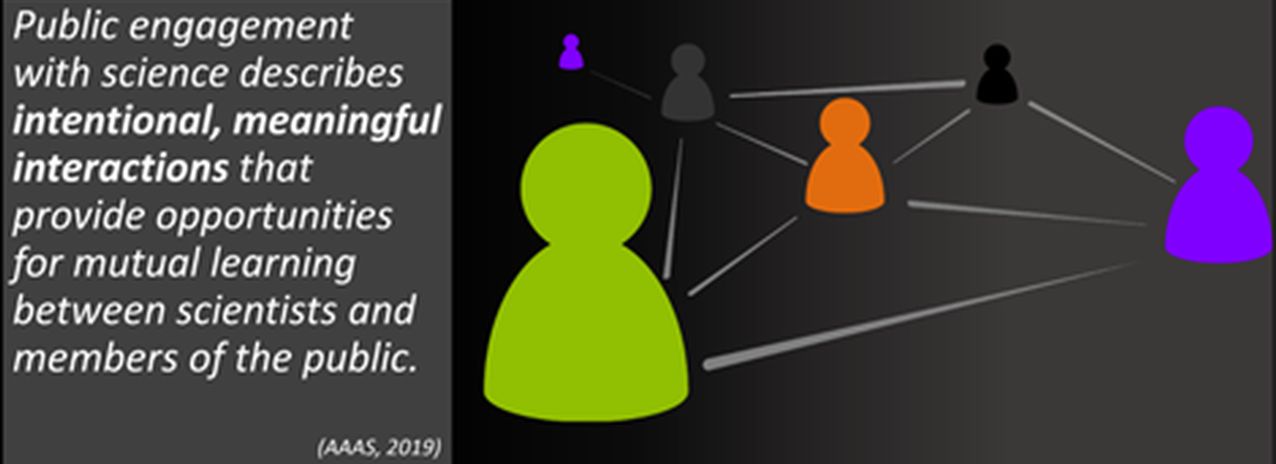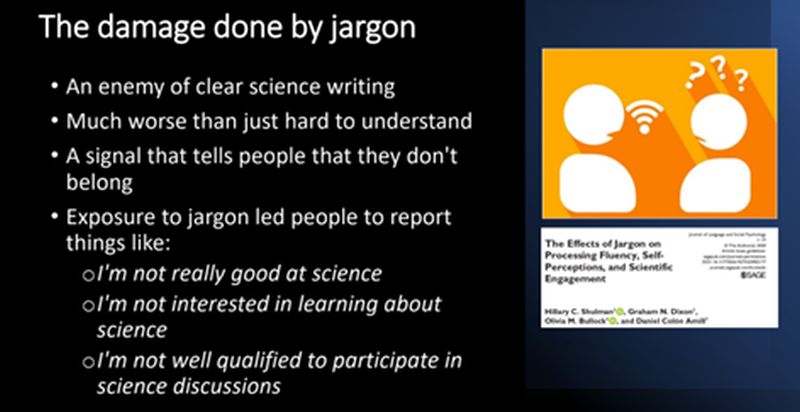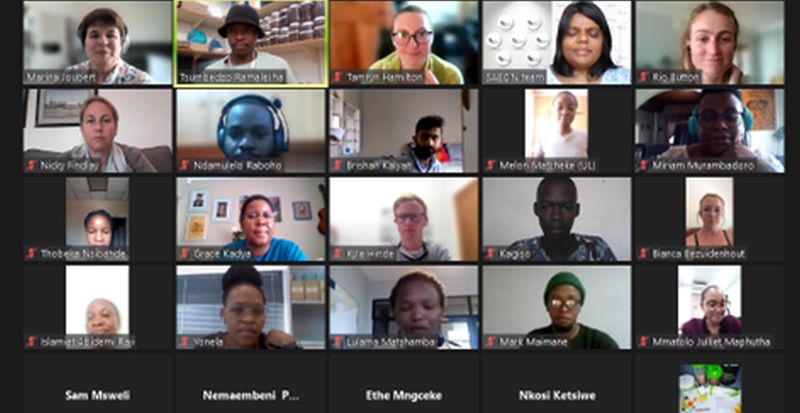To elaborate more on how scientists can have fruitful engagement with the public, Dr Joubert explained the guiding principles, effective plan and importance of ethics in public engagement with science.
Scientific jargon and storytelling
Science is not finished until it is communicated – Sir Mark Walport
To ensure substantive public engagement with science and create an inclusive environment for informal learning, scientists need to recognise the need to engage all members of the public, focus on inclusion of diverse groups and break down barriers that keep the public from engaging with science. Central to ensuring substantive public engagement with science in the South African context is language.
Dr Joubert kicked off day two by explaining the importance of using plain language when scientists engage with the public as this will ensure that the public is able to follow the conversation, remain engaged and understand the message being communicated by the scientist. What science is, why it is important to the public and why there is a need to engage the public before, during and after a research project can be understood very well through storytelling.





